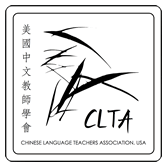From the President
March 2000
Source: CLTA Newsletter 24.1. March 2000.
Greetings GEWEI from Iowa.
You should all have received a copy of the CLTA Articulation Project Survey recently. If you have not done so, I urge you to take a moment to fill out this important survey and mail it to CLTA Headquarters as soon as possible, in the envelope provided. As Chinese becomes more widely taught, the success of our instructional efforts increasingly relies on rational coordination among curricula at different instructional levels in different settings. This national survey is aimed at collecting data on the perceptions of pre-college and college Chinese instructors on curriculum areas that may need better coordination. The survey also solicits information about the strengths and weaknesses of students coming from pre-college programs and on any perceived adjustments that might need to be made in programs at both the pre-college and college levels. Data collected in this survey will serve as an important guide for our national and local/regional articulation efforts. The articulation committee will make a report on the results of this survey at the 2000 CLTA annual conference in Boston in November. Thank you very much for your input.
In addition to this national articulation survey, the CLTA Board of Directors is also engaging in a number of important tasks this year for the purpose of reaching out to other national organizations in and related t our field. One of them, led by Professor Jane Yang, is to strengthen connections with the Association for Asian Studies (AAS). CLTA has been holding its annual conferences in conjunction with those of the American Council on the Teaching of Foreign Languages (ACTFL), a practice that has served us well in our efforts to deal with issues in second language acquisition and pedagogy in general while at the same time focus on issues of purely Chinese concerns. While we will continue to be affiliated with ACTFL for our annual conferences, we think it is also important for CLTA to strengthen its ties with AAS. AAS is a most appropriate setting for us to bring together area studies faculty and faculty in Chinese language instruction to discuss how Chinese language study can be better integrated into the Asian studies curriculum. Efforts are being made to put together a proposal for a CLTA-sponsored panel for the 2001 AAS annual meeting in Chicago.
Another task currently being taken on by the CLTA Board of Directors is the revision of sections of the CLTA By-Laws in order to allow ex-officio representatives from all three major pre-college Chinese language teacher associations to attend the Board meetings. These three associations are the Chinese Language Association of Secondary-Elementary Schools (CLASS), the Chinese School Association in the United States (CSAUS), and the National Council of Associations of Chinese Language Schools (NCACLS). Representatives of CLASS and NCACLS have been invited to sit in on our Board meetings over the past few years. As more students are taking Chinese at the pre-college levels, in either high schools or community schools, than at the college levels, it is important for CLTA, the oldest association for Chinese language education in North America, to reach out to all these major pre-college organizations. Led by Professor Claudia Ross, the Board is currently examining the Bylaws carefully and exploring feasible options to accommodate this by-laws revision. As changes to the By-laws will need to be voted on by the membership, you will be hearing from the Board in the months ahead regarding this matter.
Best wishes for a productive spring semester.
Ke Chuanren
